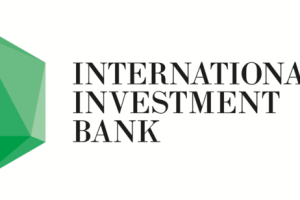Alătură-te comunității noastre!
Vezi cele mai recente știri & informații din piața de capital


Euro fell against the US Dollar (EUR/USD) by 0.63% today and reaches its lowest level in more than a month at 1.08740. Against the British pound, the Euro (EUR/GBP) rose by 0.13% after reaching its highest levels this week at 0.86204 early this morning.
The euro’s movements came despite the rise in inflation, the confidence of institutional investors in the German economy, and the return of hawkish tone from the monetary policy officials in the region. However, this was offset by concerns about the Federal Reserve maintaining high interest rates for a longer period than expected.
A member of the European Central Bank’s (ECB) Board of Governors, Joachim Nagel, stressed that it is too early to talk about cutting interest rates.
The statements of the members of the ECB came on the same day that we witnessed the return of inflation to accelerate again in Germany, which also came after inflation numbers that witnessed a higher-than-expected acceleration in the United States last December.
While inflation figures and the escalation of military actions in the Red Sea appear to have contributed to reshaping market expectations of the interest rate path on the both sides of the Atlantic.
This, in turn, was reflected in further rises in Treasury bond yields since last Friday and restored some strength to the US dollar.
As for today’s data, we witnessed a stronger than expected reading of the ZEW Economic Sentiment Index in Germany for January, which came at the highest level since last February, at 15.2 points.
This figure represents the third positive monthly reading in a row, after a 6-month period of negative sentiment. While the Current Conditions Index continued to decline slightly to -77.3.
This positive sentiment comes from the optimism about the ECB cutting interest rates during the first half of this year, which was assumed by more than half of respondents in the latest survey, according to the president of the ZEW, Achim Wambach.
He also pointed out that the rise in inflation last December had no impact on the monetary policy expectations of survey participants either.
On the other hand, at the Eurozone level, sentiment declined slightly in January to 22.7, down from 23 points last month, in light of developments in the Eurozone. However, the Current Conditions Index has witnessed a decline in its negativity to 59.3.
Also today, we witnessed the final Consumer Price Index (CPI) reading for December in Germany as well, and thus we have obtained a series of inflation figures for the year 2023. As expected, inflation rose to 3.7% last month on an annual basis, and this was a reversal of the decline in November to 3.2%. On a monthly basis, inflation rose for the first time since last September, by 0.1%.
As for the entire year 2023, inflation rose by 5.9% on an annual basis compared to the year 2022, which in turn recorded the highest record levels.
While the head of the Federal Statistical Office (Destatis), Ruth Brand, attributed this rise in inflation to a series of crises and wars that affected all stages of the economic process.
The biggest driver of the rise in inflation was the continued rise in food prices in almost all its types during the past year, by 12.4% compared to the year 2022, in which prices also recorded a growth of 13.4%.
Energy prices continued to rise over the past year as a whole, by 5.3% compared to the previous year. While Brand indicated that the relief measures contributed to pushing energy prices to relative calm during the past year after a huge increase of about 30% in the year 2022.
This decline was specific to energy products provided to the consumer, with a decrease of 22.2% and 5.8%. % for both heating oil and motor fuel. In contrast, natural gas and electricity prices rose by 14.7% and 12.7%, respectively, each.
As for core inflation, which excludes volatile food and energy items, it grew by 5.1% in 2023 on an annual basis after it was 3.8% in 2022. Aside from food and energy as well, good prices rose by 7.3% in 2023 in addition to an increase of 4.8% for durable goods.
At the time, inflation was below the general average for service prices, at a rate of 4.4%. While rental and transportation prices grew by 2% and 2.5%, respectively.
In UK, the pound came under more pressure against the euro today with the labor market data. Growth in Average Earning Index + Bonus declined to 6.5% last November on an annual basis, which represents the slowest pace of growth since last April. While the unemployment rate remained the same at 4.2% in November as well.
In bond markets, despite a positive start, Eurozone bond yields fell, putting further pressure on the single currency. The yield on ten-year German Bunds fell to 2.184% at approximately 8:00 am.
While US Treasury bond yields witnessed a similar decline at the same time, they were able to consolidate and return to a slight rise again.
As for British gilt yields, they recorded the lowest levels this week, along with a number of labor market figures issued there as well, which also contributed to supporting the euro against the pound.









Vezi cele mai recente știri & informații din piața de capital